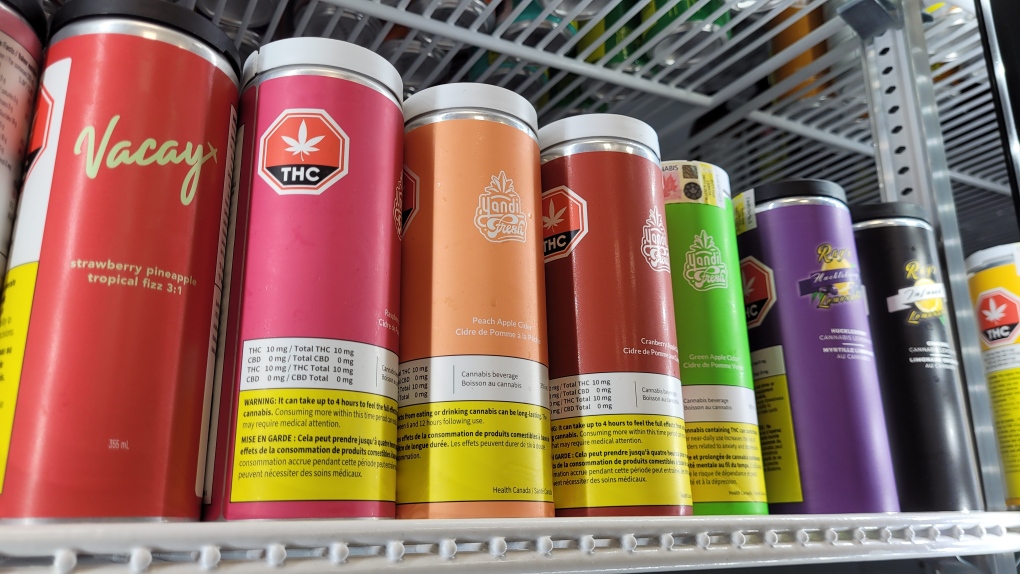Stigma surrounding recreational cannabis persists
Despite five years having passed since the legalization of recreational pot in Canada, Kate Grimmell — a budtender at Greentown Cannabis in LaSalle — remembers her favourite customer as an example of the stigma that continues to surround cannabis.
“She probably had to be 90. She came in and bought her little, three-and-a-half-gram bag of Pink Kush. She stuffed it in her purse so that her daughter wouldn’t know that she was smoking weed. It was the cutest thing,” said Grimmell.
Recreational cannabis was legalized in Canada five years ago.
What immediately followed was a surge in weed shops popping up in cities across the country, along with continued debate about its health effects.
According to Greentown Cannabis in LaSalle, Ont., government regulations and social media rules are perpetuating the stigma surrounding pot.
“You get some people who are quite open about it. To them, it’s the same as going to the liquor store, which is how I view it also,” said Grimmell.
But there are some people who won’t make an account with us or anything. They don’t want a paper trail from the cannabis store. They’re still careful about or worried what other people will think.”
Unlike LCBO stores which are allowed to show off their products to passersby through glass windows, cannabis stores are prohibited from allowing products to be seen from the exterior of their shop.
Meanwhile, Meta — which runs Facebook and Instagram — bans advertisements of cannabis products on their platforms. Advertisements for alcohol are permitted to Canadians 19 or older.
Google also does not permit advertisements that promote the use and sale of cannabis.
Cannabis beverages at pictured at Greentown Cannabis in LaSalle, Ont. on Wednesday, Oct. 11, 2023. (Sanjay Maru/CTV News Windsor)
“No cannabis stores can advertise on billboards. I see advertisements for adult entertainment facilities on billboards in Windsor, but no cannabis stores,” said Palash Tiwari, vice president of Katzman Enterprises which operates Greentown Cannabis in LaSalle.
“We’re thankful to the government for giving out so many licenses, but our hands are tied. There’s so many limiting factors which still limit the customer finding out about cannabis brands and cannabis retail.”
Earlier this year, the Alcohol and Gaming Commission of Ontario announced it is assessing the possibility of permitting cannabis stores to display their products in storefront windows — but no update has been provided on a decision.
“We still get people, every other day, who walk into this store for the first time. In terms of purely a business perspective, the whole industry is still in a stage of infancy,” said Tiwari.
But the last five years have not come without concerns for the Windsor-Essex County Health Unit.
Eric Nadalin, WECHU’s director of public health programs, said Windsor-Essex has seen a “slight increase” in emergency department visits and hospitalizations since 2018 related to cannabis use.
“When it comes to accidental ingestion, as a result of potentially young people consuming products that are left out and may look like candy or chocolate or cookies or brownies, that is a concern,” said Nadalin.
In 2021, the rate of cannabis-related hospitalizations (per 100,000 people) was recorded at around 101, according to WECHU’s most recent data.
In 2018, that number was about 76.
The biggest contributors to that increase, Nadalin said, is the effects of cannabis on youth brain development, accidental poisonings and motor vehicle incidents due to intoxication.
“We want to make sure that the community is aware that these risks are associated with the use of legal but harmful substances like cannabis and alcohol,” said Nadalin.
As for Greentown Cannabis in LaSalle, management said they can only offer the right information to customers if they are allowed the same leeway in promoting that information as their alcohol store counterparts.
“Information is nothing. The most important thing is accessibility. The right information needs to get to the right people because our customer demographic is so diverse,” said Tiwari.
“We seen baby boomers. We see people from Gen Z. It’s quite a good mix.”
No Byline Policy
Editorial Guidelines
Corrections Policy
Source
